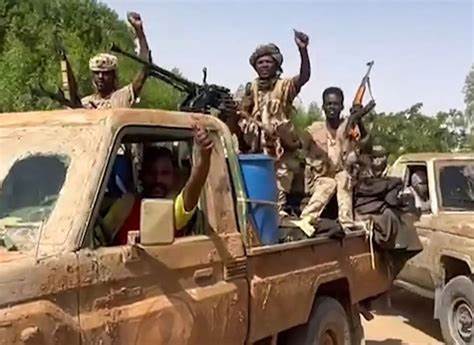A News Analysis by Lizzy Okoji, News Agency of Nigeria (NAN)
With air strikes in Khartoum, Darfur, and other cities of Sudan resuming just hours after the ceasefire, one would only wonder what next to expect in the conflict-torn country.
The current conflict in Sudan which started on April 15 is the result of the lingering rivalry between two Generals, Sudanese President, Gen. Abdel Fattah al-Burhan, and his Deputy, Gen. Mohammed Hamdan Dagalo.
The quarrel dates back to 2021 after al-Burhan overthrew the joint military-civilian government which ousted Sudanese long-serving President, Omar al-Bashir in 2019.
Since then, al-Burhan head of the Sudanese Armed Forces and former Chairman, Sudan Transition Sovereignty Council and Dagalo, popularly called ‘Hemedti’, head of the Rapid Support Forces (RSF) have been are locked in a deadly fight over who will control of the country.
Prof. Bola Akinterinwa, Former Director-General of the Nigerian Institute of International Affairs (NIIA) described the conflict as an unfortunate product of selfish leadership.
“What is happening in Sudan is that we have two Generals fighting and the African Union expects that under normal circumstances, there must be peaceful approach to it; using war to take over power is illegal.
“Why the war is most unfortunate is because those who are fighting were together in the same camp as at 2019.
“In this case, what brought them together initially, what is now separating them is because of selfishness and this is why I think it is most unfortunate.
“Many lives have been lost, many people have been displaced and rather than focusing their attention on the economic situation in Sudan they are fighting over who will be in charge of the country,” Akinterinwa told the News Agency of Nigeria (NAN).
Akinterinwa blamed the degeneration of the political situation of Sudan on the failure of all parties to adhere to agreements before the ousting of former President al-Bashir in 2019.
When two elephants fight, the grass suffers. The conflict in Sudan has forced many grasses, including Nigerians in Sudan and other foreigners to suffer unimaginable losses.
There are growing concerns over the safety of Nigerians in Sudan as the Federal Government makes frantic efforts to evacuate them through neigbouring Egypt.
Also a source of worry is the impact of such an arms conflict in Sub-Saharan Africa which is also a theatre of terrorist activities fuelled by illegal arms deals by dubious elements from conflict-ravaged countries such as Libya.
The impact of the conflict in Sudan, experts say, could resonate in heightened insecurity, humanitarian crises, and economic difficulties, for Sub-Saharan African countries, particularly Nigeria which has had to contend with terrorist groups such Boko Haram and ISWAP.
Dr Kabiru Adamu, a security expert and Managing Director, Beacon Consulting Limited, told NAN that given the number of Nigerians in Sudan there is the likelihood of some criminal elements infiltrating the group as evacuation goes on.
“In a recent interview, the Sudanese Ambassador to Nigeria claimed that there were about five million Sudanese of Nigerian descent currently living in different parts of Sudan.
“Some of them are fourth generation, fifth generation or even longer than that; there is a strong business link, especially the north Eastern part of Nigeria.
“Given these huge numbers it is only normal that there would be concerns. Another area of concern is the possibility of a prolonged conflict reinforcing or institutionalising the spread of weapons.
“Already, Nigeria has that challenge. There are so many weapons within the region including Nigeria, small arms and light weapons”, he said.
He said the security implication for Nigeria is worsened by the age-long gun running channels that goes through Sudan which could expose Nigeria to the activities of gun runner due to its potential large market for illegal arms.
“ The entire Sahel region is almost being dominated by Jihadists, Burkina Faso is an example, Mali, Niger to an extent, and Sudan and Chad used to be the only countries that presented some sort of hope.
“So, if there is a degeneration of the security situation in Sudan you could see the infiltration of these jihadists into other regions including Nigeria,” Adamu said.
The international community said it would do everything possible to end the Sudan conflict.
The United Nations Secretary-General, Antonio Guterres, said the UN would use all its instruments, institutions and structures to ensure that all the parties in the conflict appreciated the need to sheath their swords and embrace peace.
“The United Nations is not leaving Sudan. Our commitment is to the Sudanese people in support of their wishes for a peaceful and secured future. We stand with them at this terrible time.
“I call on all council members to exert maximum leverage with the parties to end the violence, restore order and return to the best of democratic transition.
“We must do everything within our power to pursue them from the edge of the abyss,” Guterres told a recent Security Council meeting on maintaining international peace.
Experts say the intervention of world leaders, especially African leaders is critical to resolving the conflict in Sudan.
The brawling Generals must accept that no country thrives under war and conflicts. Peace cannot be kept by force; it is always a product of compromise.



